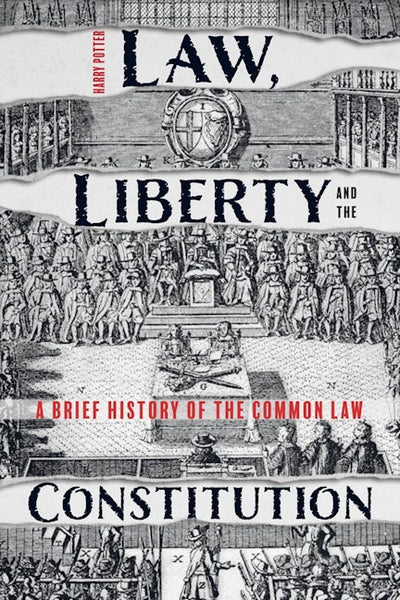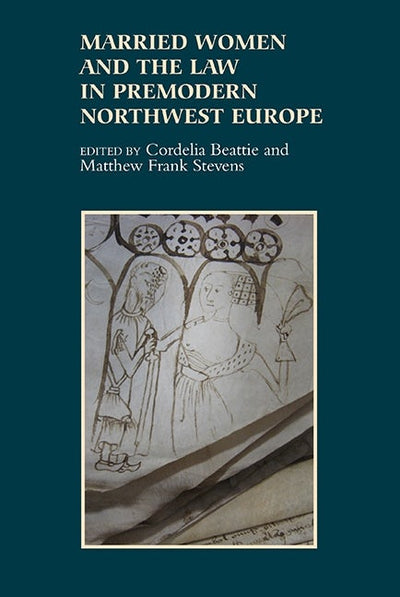Filter
-
Antiques & Collectibles
-
Architecture
-
Art
-
Bibles
-
Biography & Autobiography
-
Body, Mind & Spirit
-
Business & Economics
-
Comics & Graphic Novels
-
Computers
-
Cooking
-
Crafts & Hobbies
-
Design
-
Education
-
Family & Relationship
-
Fiction
-
Foreign Language Study
-
Games & Activities
-
Gardening
-
Health & Fitness
-
History
-
House & Home
-
Humor
-
Juvenile Fiction
-
Juvenile Nonfiction
-
Language Arts & Disciplines
-
Law
-
Literary Collections
-
Literary Criticism
-
Mathematics
-
Medical
-
Miscellaneous
-
Music
-
Nature
-
Performing Arts
-
Pets
-
Philosophy
-
Photography
-
Poetry
-
Political Science
-
Psychology
-
Reference
-
Religion
-
Self-Help
-
Science
-
Social Science
-
Sports & Recreation
-
Study Aids
-
Technology & Engineering
-
Transportation
-
Travel
-
True Crime
-
Young Adult Fiction
-
Young Adult Nonfiction
-
Antiques & Collectibles
-
Architecture
-
Art
-
Bibles
-
Biography & Autobiography
-
Body, Mind & Spirit
-
Business & Economics
-
Comics & Graphic Novels
-
Computers
-
Cooking
-
Crafts & Hobbies
-
Design
-
Education
-
Family & Relationship
-
Fiction
-
Foreign Language Study
-
Games & Activities
-
Gardening
-
Health & Fitness
-
History
-
House & Home
-
Humor
-
Juvenile Fiction
-
Juvenile Nonfiction
-
Language Arts & Disciplines
-
Law
-
Literary Collections
-
Literary Criticism
-
Mathematics
-
Medical
-
Miscellaneous
-
Music
-
Nature
-
Performing Arts
-
Pets
-
Philosophy
-
Photography
-
Poetry
-
Political Science
-
Psychology
-
Reference
-
Religion
-
Self-Help
-
Science
-
Social Science
-
Sports & Recreation
-
Study Aids
-
Technology & Engineering
-
Transportation
-
Travel
-
True Crime
-
Young Adult Fiction
-
Young Adult Nonfiction
3 products
Law, Liberty and the Constitution
Regular price $29.95 Save $-29.95
A new approach to the telling of legal history, devoid of jargon and replete with good stories, which will be of interest to anyone wishing to know more about the common law - the spinal cord of the English body politic.
Throughout English history the rule of law and the preservation of liberty have been inseparable, and both are intrinsic to England's constitution. This accessible and entertaining history traces the growth of the law from its beginnings in Anglo-Saxon times to the present day. It shows how the law evolved from a means of ensuring order and limiting feuds to become a supremely sophisticated dispenser of justice and the primary guardian of civil liberties.This development owed much to the English kings and their judiciary, who, in the twelfth century, forged a unified system of law - predating that of any other European country - from almost wholly Anglo-Saxon elements. Yet by theseventeenth century this royal offspring - Oedipus Lex it could be called - was capable of regicide. Since then the law has had a somewhat fractious relationship with that institution upon which the regal mantle of supreme power descended, Parliament.
This book tells the story of the common law not merely by describing major developments but by concentrating on prominent personalities and decisive cases relating to the constitution, criminal jurisprudence, and civil liberties. It investigates the great constitutional conflicts, the rise of advocacy, and curious and important cases relating to slavery, insanity, obscenity, cannibalism, the death penalty, and miscarriages of justice. The book concludes by examining the extension of the law into the prosecution of war criminals and protection of universal human rights and the threats posed by over-reaction to national emergencies and terrorism. Devoid ofjargon and replete with good stories, Law, Liberty and the Constitution represents a new approach to the telling of legal history and will be of interest to anyone wishing to know more about the common law - the spinal cordof the English body politic.
Harry Potter is a former fellow of Selwyn College, Cambridge and a practising barrister specialising in criminal defence. He has authored books on the death penalty and Scottish history andwrote and presented an award-winning series on the history of the common law for the BBC.
Throughout English history the rule of law and the preservation of liberty have been inseparable, and both are intrinsic to England's constitution. This accessible and entertaining history traces the growth of the law from its beginnings in Anglo-Saxon times to the present day. It shows how the law evolved from a means of ensuring order and limiting feuds to become a supremely sophisticated dispenser of justice and the primary guardian of civil liberties.This development owed much to the English kings and their judiciary, who, in the twelfth century, forged a unified system of law - predating that of any other European country - from almost wholly Anglo-Saxon elements. Yet by theseventeenth century this royal offspring - Oedipus Lex it could be called - was capable of regicide. Since then the law has had a somewhat fractious relationship with that institution upon which the regal mantle of supreme power descended, Parliament.
This book tells the story of the common law not merely by describing major developments but by concentrating on prominent personalities and decisive cases relating to the constitution, criminal jurisprudence, and civil liberties. It investigates the great constitutional conflicts, the rise of advocacy, and curious and important cases relating to slavery, insanity, obscenity, cannibalism, the death penalty, and miscarriages of justice. The book concludes by examining the extension of the law into the prosecution of war criminals and protection of universal human rights and the threats posed by over-reaction to national emergencies and terrorism. Devoid ofjargon and replete with good stories, Law, Liberty and the Constitution represents a new approach to the telling of legal history and will be of interest to anyone wishing to know more about the common law - the spinal cordof the English body politic.
Harry Potter is a former fellow of Selwyn College, Cambridge and a practising barrister specialising in criminal defence. He has authored books on the death penalty and Scottish history andwrote and presented an award-winning series on the history of the common law for the BBC.

Sir John Fortescue and the Governance of England
Regular price $170.00 Save $-170.00
The first comprehensive biography of arguably the most important political thinker of fifteenth-century England.
Sir John Fortescue was arguably the most important political thinker of fifteenth-century England. Rising from relative obscurity to become Chief Justice of the King's Bench he progressively assumed a political role as a partisanof the Lancastrian cause during the Wars of the Roses. As Chancellor-in-exile to Henry VI he wrote on the lawful succession and in praise of the common law of England. Ultimately making his peace with the Yorkists in 1471, he presented Edward IV with The Governance of England, a treatise that set the tone for debates about the extent of royal and parliamentary power for centuries to come. Demonstrating how England's traditional laws, customs and parliament could ensure that monarchs safeguarded the rights and property of their subjects, his views on these institutions continue to resonate with contemporary debates about England's relationship with Europe and the definition of national identity.
This book provides the first comprehensive biography of Fortescue. It reassesses his career and thought, challenging earlier views about his life, and discusses his work as a lawyer and political thinkerin the light of modern scholarship.
MARGARET KEKEWICH is a former Senior Lecturer in History at the Open University.
Sir John Fortescue was arguably the most important political thinker of fifteenth-century England. Rising from relative obscurity to become Chief Justice of the King's Bench he progressively assumed a political role as a partisanof the Lancastrian cause during the Wars of the Roses. As Chancellor-in-exile to Henry VI he wrote on the lawful succession and in praise of the common law of England. Ultimately making his peace with the Yorkists in 1471, he presented Edward IV with The Governance of England, a treatise that set the tone for debates about the extent of royal and parliamentary power for centuries to come. Demonstrating how England's traditional laws, customs and parliament could ensure that monarchs safeguarded the rights and property of their subjects, his views on these institutions continue to resonate with contemporary debates about England's relationship with Europe and the definition of national identity.
This book provides the first comprehensive biography of Fortescue. It reassesses his career and thought, challenging earlier views about his life, and discusses his work as a lawyer and political thinkerin the light of modern scholarship.
MARGARET KEKEWICH is a former Senior Lecturer in History at the Open University.

Married Women and the Law in Premodern Northwest Europe
Regular price $130.00 Save $-130.00
Fresh approaches to how premodern women were viewed in legal terms, demonstrating how this varied from country to country and across the centuries.
There has been a tendency in scholarship on premodern women and the law to see married women as hidden from view, obscured by their husbands in legal records. This volume provides a corrective view, arguing that the extent to which the legal principle of coverture applied has been over-emphasized. In particular, it points up differences between the English common law position, which gave husbands guardianship over their wives and their wives' property, and the position elsewhere in northwest Europe, where wives' property became part of a community of property. Detailed studies of legal material from medieval and early modern England, Wales, Scotland, Ireland, Ghent, Sweden,Norway and Germany enable a better sense of how, when, and where the legal principle of coverture was applied and what effect this had on the lives of married women. Key threads running through the book are married women'srights regarding the possession of moveable and immovable property, marital property at the dissolution of marriage, married women's capacity to act as agents of their husbands and households in transacting business, and married women's interactions with the courts.
Cordelia Beattie is Senior Lecturer in Medieval History at the University of Edinburgh; Matthew Frank Stevens is Lecturer in Medieval History at Swansea University
Contributors: Lars Ivar Hansen, Shennan Hutton, Lizabeth Johnson, Gillian Kenny, Mia Korpiola, Miriam Muller, S.C. Ogilvie, Alexandra Shepard, Cathryn Spence.
There has been a tendency in scholarship on premodern women and the law to see married women as hidden from view, obscured by their husbands in legal records. This volume provides a corrective view, arguing that the extent to which the legal principle of coverture applied has been over-emphasized. In particular, it points up differences between the English common law position, which gave husbands guardianship over their wives and their wives' property, and the position elsewhere in northwest Europe, where wives' property became part of a community of property. Detailed studies of legal material from medieval and early modern England, Wales, Scotland, Ireland, Ghent, Sweden,Norway and Germany enable a better sense of how, when, and where the legal principle of coverture was applied and what effect this had on the lives of married women. Key threads running through the book are married women'srights regarding the possession of moveable and immovable property, marital property at the dissolution of marriage, married women's capacity to act as agents of their husbands and households in transacting business, and married women's interactions with the courts.
Cordelia Beattie is Senior Lecturer in Medieval History at the University of Edinburgh; Matthew Frank Stevens is Lecturer in Medieval History at Swansea University
Contributors: Lars Ivar Hansen, Shennan Hutton, Lizabeth Johnson, Gillian Kenny, Mia Korpiola, Miriam Muller, S.C. Ogilvie, Alexandra Shepard, Cathryn Spence.





